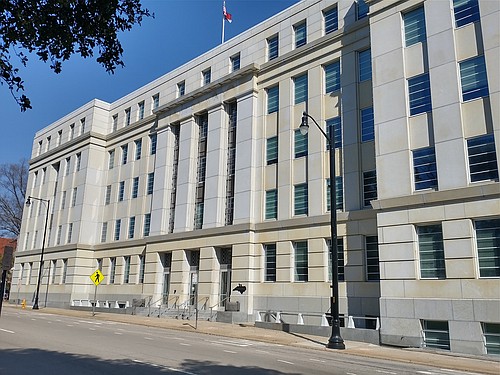What's next after Supreme Court rules against constitutional amendments?
August 22, 2022 at 11:17 a.m.

Even before I opened the N.C. Supreme Court’s ruling on a legal challenge to two 2018 constitutional amendments, I knew how each justice would likely rule on the question.
Nearly every challenge to the laws passed by the GOP legislature these days results in a party-line decision by the state’s highest court. And this one was no different: The four Democrats who make up the court’s majority found that the legislature’s racially gerrymandered composition in 2018 – when it put voter ID and an income tax cap on the November ballot – likely make those constitutional amendments themselves unconstitutional.
The three Republicans on the court, of course, vehemently disagreed, saying the ruling overturns the will of the voters who agreed to the amendments in 2018. Their dissent, authored by Justice Phil Berger Jr., was as fiery as the statements issued by GOP legislators Friday. They wrote that “the door has been opened, however, for judicial dissolution of legislative authority in the future.”
What was most interesting about the majority’s ruling was how they answered a key question that’s been posed since the lawsuit was filed: If racially gerrymandered seats limit the legislature’s authority to pass laws, wouldn’t that invalidate every single bill passed during that session?
The Democrats on the court laid out a test for the Wake County Superior Court judge to consider in additional proceedings:
Did lawmakers from the districts determined to be gerrymanders cast the deciding votes? “The legislature as a whole has not lost its authority to exercise the people’s sovereign power,” Justice Anita Earls wrote.
Since that test alone would also apply to a variety of other legislative actions, “three further factors must be examined to determine if a challenged constitutional amendment so gravely threatens principles of popular sovereignty and democratic self-rule as to require retroactive invalidation," she says.
One of those is specific to voter ID, Earls suggests, because of the potential impact it could have on minorities’ access to vote.
“Requiring persons to be bound by a constitutional amendment which specifically targets a group to which they belong for disfavored treatment, and which was enacted by a legislature formed through a political process designed to deprive them of an equal voice, is repugnant to the principles of popular sovereignty and democratic self-rule,” she wrote.
So what happens next?
Wake County Superior Court judge Bryan Collins will issue further orders based on the ruling, but voter ID wasn’t going to be in effect for this election thanks to this and other pending lawsuits. And the income tax cap isn’t relevant at the moment because neither party is proposing tax hikes right now.
Republican legislative leaders decried Friday’s ruling but haven’t outlined their next moves.
One option is to appeal the case to the U.S. Supreme Court in the hopes that they’d take it up as they have the latest redistricting case.
Another is to put the voter ID and tax cap amendments back before voters during the next legislative session – in districts that haven’t been ruled as gerrymanders. That would require a GOP supermajority, which Republicans are optimistic about regaining in November.
And in the meantime, you can guarantee this decision will be the talk of the judicial campaigns this fall as Republicans seek to win a majority on the Supreme Court.